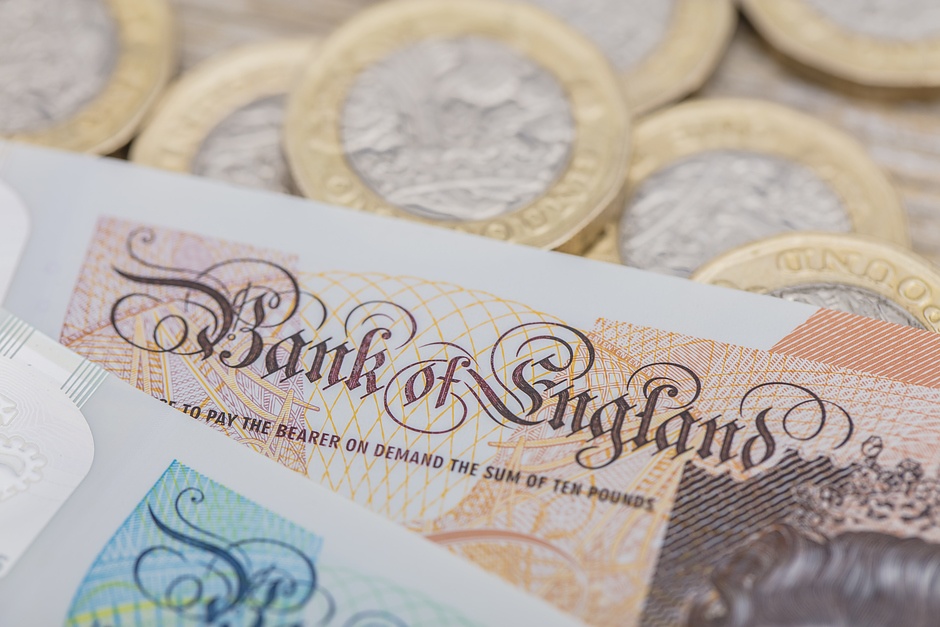GBP/USD hammered down to over two-week low, below mid-1.3100s on Bailey's dovish remarks
- GBP/USD comes under intense selling pressure in reaction to Bailey’s dovish remarks.
- Bailey hints at more aggressive rate cuts and weighs heavily on GBP amid a bullish USD.
- Reduced bets for a 50 bps Fed rate cut in November and geopolitical risks benefit the buck.

The GBP/USD pair continues losing ground for the third straight day – also marking the fourth day of a negative move in the previous five – and plummets to over a two-week low during the first half of the European session on Thursday. Spot prices currently trade below mid-1.3100s, down nearly 1.0% for the day, and seem vulnerable to decline further in the wake of Bank of England (BoE) Governor Andrew Bailey's dovish remarks.
In an interview with the Guardian newspaper published this Thursday, Bailey said that there was a chance that the BoE could become a bit more aggressive in cutting rates if there's further good news on inflation. The markets were quick to react and are now pricing in a 90% chance of a 25 basis points interest cut at the next BoE meeting in November. This, in turn, weighs heavily on the British Pound (GBP), which, along with sustained US Dollar (USD) buying, contributes to the GBP/USD pair's steep intraday fall.
The incoming US data pointed to a still resilient labor market and forced investors to scale back their expectations for a more aggressive policy easing by the Federal Reserve (Fed). This, along with geopolitical risks stemming from the ongoing conflicts in the Middle East, assists the safe-haven USD to prolong this week's recovery from its lowest level since July 2023. The USD Index (DXY), which tracks the Greenback against a basket of currencies, climbs to a three-week top and exerts additional pressure on the GBP/USD pair.
With the latest leg down, spot prices now seem to have confirmed a breakdown below the 61.8% Fibonacci retracement level of the recent rally from the 1.3000 psychological mark, or the September monthly swing low. Furthermore, oscillators on the daily chart have just started gaining negative traction and suggest that the path of least resistance for the GBP/USD pair is to the downside. Traders now look to the US economic docket – featuring Weekly Jobless Claims and the ISM Services PMI – for short-term opportunities.
(This story was corrected on October 3 at 11:28 GMT to say that GBP/USD marks the fourth negative daily move in the previous five days, not four.)
Pound Sterling FAQs
The Pound Sterling (GBP) is the oldest currency in the world (886 AD) and the official currency of the United Kingdom. It is the fourth most traded unit for foreign exchange (FX) in the world, accounting for 12% of all transactions, averaging $630 billion a day, according to 2022 data. Its key trading pairs are GBP/USD, also known as ‘Cable’, which accounts for 11% of FX, GBP/JPY, or the ‘Dragon’ as it is known by traders (3%), and EUR/GBP (2%). The Pound Sterling is issued by the Bank of England (BoE).
The single most important factor influencing the value of the Pound Sterling is monetary policy decided by the Bank of England. The BoE bases its decisions on whether it has achieved its primary goal of “price stability” – a steady inflation rate of around 2%. Its primary tool for achieving this is the adjustment of interest rates. When inflation is too high, the BoE will try to rein it in by raising interest rates, making it more expensive for people and businesses to access credit. This is generally positive for GBP, as higher interest rates make the UK a more attractive place for global investors to park their money. When inflation falls too low it is a sign economic growth is slowing. In this scenario, the BoE will consider lowering interest rates to cheapen credit so businesses will borrow more to invest in growth-generating projects.
Data releases gauge the health of the economy and can impact the value of the Pound Sterling. Indicators such as GDP, Manufacturing and Services PMIs, and employment can all influence the direction of the GBP. A strong economy is good for Sterling. Not only does it attract more foreign investment but it may encourage the BoE to put up interest rates, which will directly strengthen GBP. Otherwise, if economic data is weak, the Pound Sterling is likely to fall.
Another significant data release for the Pound Sterling is the Trade Balance. This indicator measures the difference between what a country earns from its exports and what it spends on imports over a given period. If a country produces highly sought-after exports, its currency will benefit purely from the extra demand created from foreign buyers seeking to purchase these goods. Therefore, a positive net Trade Balance strengthens a currency and vice versa for a negative balance.
Author

Haresh Menghani
FXStreet
Haresh Menghani is a detail-oriented professional with 10+ years of extensive experience in analysing the global financial markets.

















